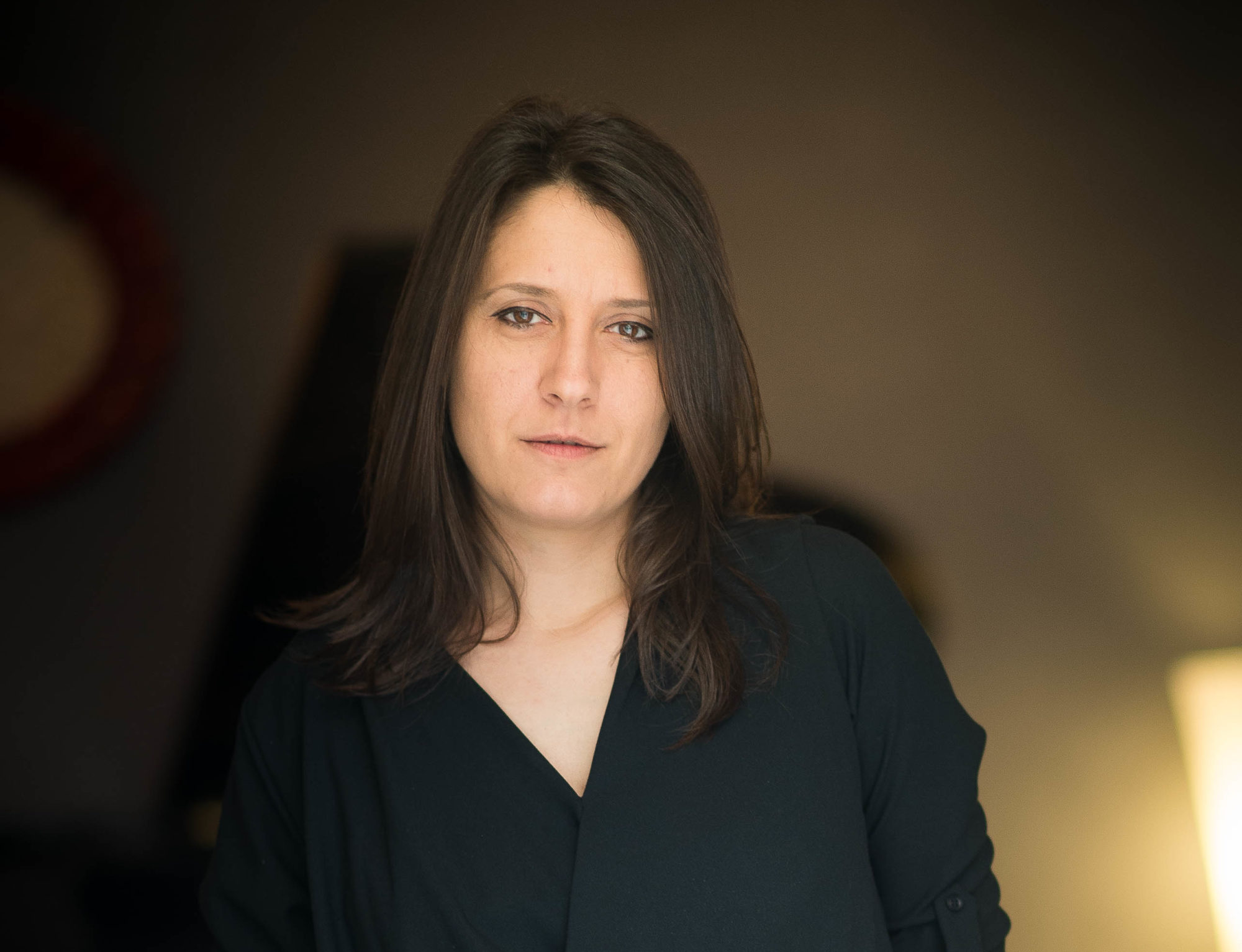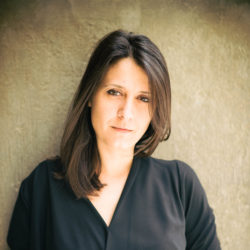Giovanna Riboli
Titular organist of the 1558 Onofrio Zeffirini da Cortona organ at the Badia Fiorentina (Florence), curator of 17 illuminated manuscripts in square notation (Gregorian chant) from the 15th–18th centuries, and vocal coach of the choir of the Fraternités Monastiques de Jérusalem.
She is an organist, conductor, and musicologist with a career spanning performance, historical research, and teaching, specializing in sacred music, Gregorian and Beneventan chant, and historical organ repertoires.
Born in Florence, she graduated in Piano (2001) and in Organ and Organ Composition with Alessandro Albenga (2009). After further studies at the Conservatorium van Amsterdam with Pieter van Dijk, she obtained Bachelor and Master of Music degrees in historical organ performance, completing her studies on the 1738 Christian Müller organ at Sint Bavo Kerk (Haarlem). In 2017 she earned a degree in Choral Conducting with Fabio Lombardo, presenting Liszt’s Via Crucis in a concert-exam based on historical interpretative research.
Her concert career includes performances in major theatres and festivals across Italy, the Netherlands, Germany, Spain, France, Poland, Argentina, Uruguay, and the United States. She has appeared at the Maggio Musicale Fiorentino, Roma Festival Barocco, Festival Internacional de Órgano del Uruguay, and the Sweelinck International Organ Festival.
In November 2024, she made a landmark appearance as conductor at Carnegie Hall in New York, leading the project Spiritus Dei ferebatur, an event exploring early Christian liturgical chant and receiving enthusiastic critical and audience acclaim.
In 2018 she won a grant within the European Year of Cultural Heritage, promoted by the Italian Ministry of Culture, with the project Diversity and Intercultural Dialogue in Musical Tradition, dedicated to studying and disseminating European and extra-European musical heritage, with a special focus on the Georgian vocal tradition.
She has recorded for Tactus and Brilliant Classics, including The Organ of the Badia Fiorentina, which received a four-star review from BBC Music Magazine, was featured by Rete Toscana Classica and Rainews24 as CD of the Month, and gained international critical acclaim.
Her research on the Zeffirini organ and the illuminated manuscripts of the Badia Fiorentina has been published in scholarly volumes and in the Proceedings of the Medieval Studies Conference NUME (2023).
She has served as organist and choir director in major churches in Amsterdam, Florence, and Buenos Aires, and contributed to the organization of international organ festivals.
She also collaborated with the University of Florence – Faculty of Law for the course Law and Music.
In 2023 she was organ lecturer and speaker at the University of St Andrews Summer Course (Scotland), addressing topics in organ performance and historical research. In 2025 she was a guest at the University of Cambridge, where she gave a masterclass on organ performance and a concert at Trinity College.
In October 2025, she held a residency at Florida State University (USA), giving lectures on medieval liturgical chant and Renaissance and Baroque performance practice.
She is Professor of Sacred Music at the Conservatory of Benevento, where she also teaches Organ and Gregorian Chant, and directs a choir specializing in ancient liturgical repertoire (7th–11th centuries).
She is co-founder and artistic director of Mesotonica, a cultural association promoting early music in Prato, and artistic director of the International Early Music Festival PratoAntiqua.
Since 2015, she has been principal organist of the 1558 Zeffirini da Cortona organ in meantone temperament at the Badia Fiorentina, the oldest monastery in Florence, mentioned by Dante Alighieri in Canto XVI of the Divine Comedy, and the place where Giovanni Boccaccio, in 1373, gave the first Lectura Dantis, which bestowed on Dante’s Commedia the epithet “Divine.”
Selected Reviews and Critical Acclaim
Her interpretations have been praised by international critics for their expressive depth and technical mastery.
La Nación (Buenos Aires) wrote:
“It is with Bach that Giovanna Riboli’s interpretative artistry reaches its greatest power, together with her excellent organ technique.”
BBC Music Magazine awarded her recording The Organ of the Badia Fiorentina a four-star review, describing it as
“virtuosic and rich in colour,”
Fr. Carlo Turri Zanoni, Prior of the Badia Fiorentina, wrote:
“Her conscious understanding of the theological and mystagogical meaning of music within liturgy, developed over years in monasteries where prayers are sung as a liturgy of medieval monodic chants with Byzantine influences, makes her interpretations not a simple accompaniment to the Word, but its continuation.”
About her invitation to the University of St Andrews Summer Course, the university stated:
“The invitation is a consequence of Prof. Riboli’s internationally recognised expertise in the field of organ performance and related research, her recording activities, and her position as curator of the 16th-century Zeffirini organ at the Badia Fiorentina in Florence.”
Her performances, featured by Rete Toscana Classica and Rainews24 as CD of the Month, have been acclaimed by audiences and critics in Europe and the Americas for their depth, precision, and spiritual intensity.
Research Interests
• Medieval and Renaissance liturgical chant (Gregorian and Beneventan)
• Sacred music and the mystagogy of music
• Performance practice and historical organology
• Ancient fingering techniques in organ repertoire
• Rhetoric and symbolism in historical interpretation
• Semiology and the poetics of notation
• Resonance of sacred space and liturgical acoustics
• Dialogue between music, theology, and philosophy
• Oral and written transmission of neumatic traditions
• Sound as symbol and revelation within liturgical time
• Global musical heritage and intercultural pathways of the sacred
- Medieval and Renaissance liturgical chant (Gregorian and Beneventan)
- Sacred music and the mystagogy of music
- Performance practice and historical organology
- Ancient fingering techniques in organ repertoire
- Rhetoric and symbolism in historical interpretation
- Semiology and the poetics of notation
- Resonance of sacred space and liturgical acoustics
- Dialogue between music, theology, and philosophy
- Oral and written transmission of neumatic traditions
- Sound as symbol and revelation within liturgical time
- Global musical heritage and intercultural pathways of the sacred
- Connections between different historical liturgical repertoires

